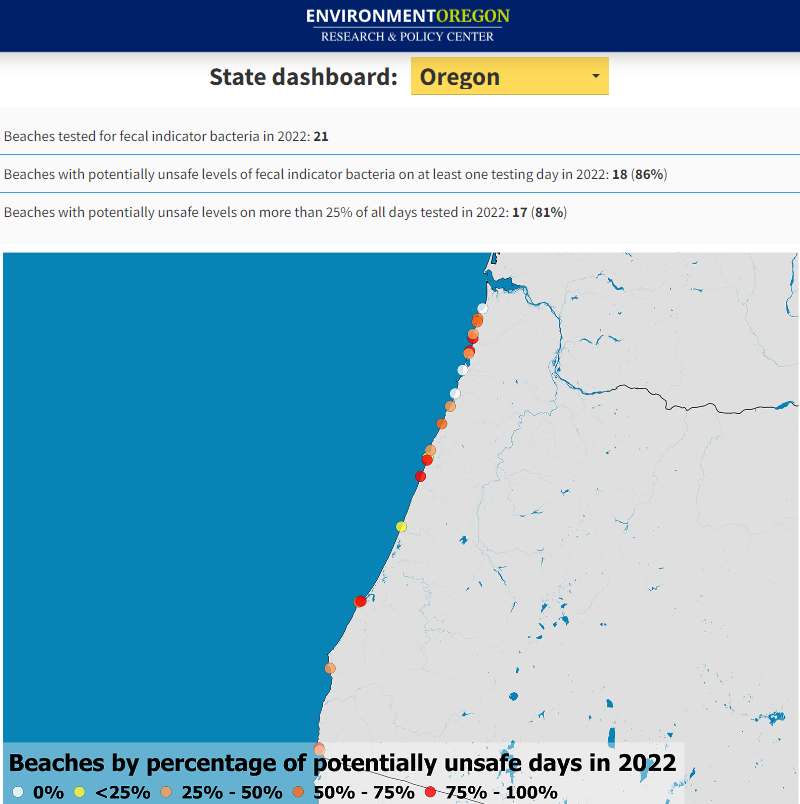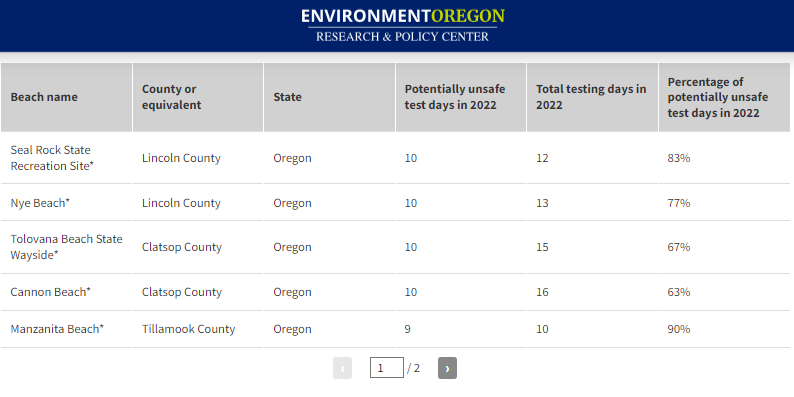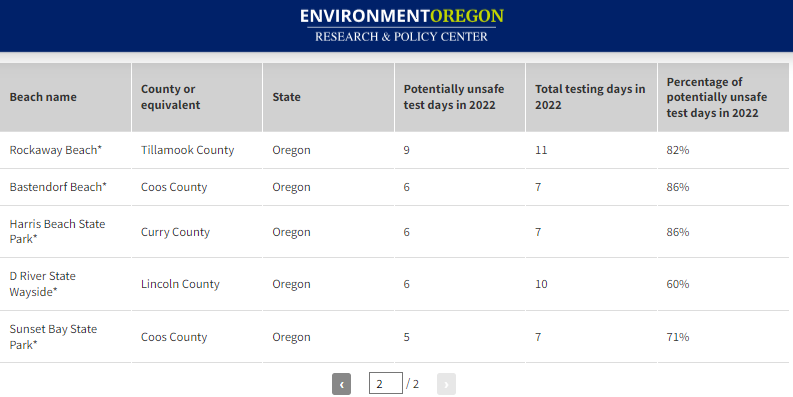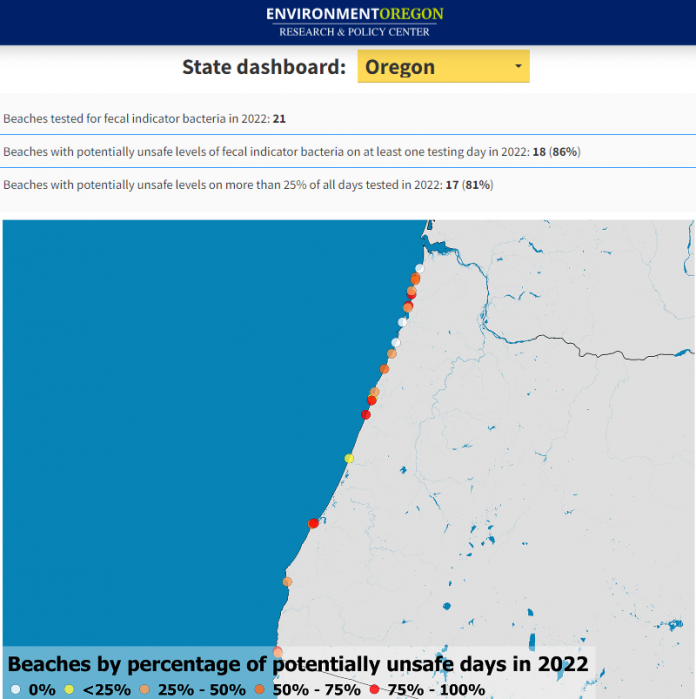The recent study conducted by Environment America’s “Safe for Swimming” report has revealed concerning findings about the extent of fecal contamination on Oregon beaches.
Out of the 3,192 beaches tested nationwide in 2022, 1,761 beaches (55%) had at least one day where fecal contamination reached potentially unsafe levels. However, the situation in Oregon is particularly alarming.
Dangerous Levels of Fecal Matter
In Oregon, nearly all of the tested beaches were found to have dangerous levels of fecal matter in the water. The study reported that 86% of the beaches tested (21 Oregon beaches) had unsafe levels of feces on at least one testing day.
What’s more, a staggering 81% of Oregon beaches showed contamination on more than 25% of the testing days.
Comparatively, the nationwide average for fecal contamination in the water is 55%, indicating that Oregon’s beaches are significantly worse off in terms of fecal contamination.
The states of Alaska and Hawaii recorded the lowest levels of contamination, with only 24% of their waters containing feces.
These findings highlight the urgent need for measures to address and mitigate the sources of fecal contamination on Oregon beaches to ensure the safety and health of beachgoers.



12 Tips That May Help You Avoid Fecal Matter
- Wash your hands regularly: Proper hand hygiene, especially before eating, can help prevent the transmission of harmful bacteria.
- Use disinfectant after every beach visit: Disinfecting wipes or sanitizers can be used to clean your hands and any surfaces that may have come into contact with fecal matter.
- Do not drink ocean water: Avoid consuming ocean water as it may contain harmful bacteria and contaminants, including fecal matter.
- Inspect the beach area closely before sitting, playing, or tanning on the sand: Look for any visible signs of contamination or waste on the beach and choose a clean area to relax or engage in activities.
- Keep food coolers and containers closed unless you’re grabbing something: Prevent the risk of contamination by keeping your food properly sealed and protected from potential sources of fecal matter.
- Wash off after swimming in the ocean: Take a shower or rinse off thoroughly after swimming to remove any potential contaminants from your body.
- Avoid laying on beaches after a storm or storm surge: Storms and surges can wash up additional fecal matter from the ocean, making the beach more contaminated. It’s best to wait until the area has been cleaned before lounging or sunbathing.
- Be cautious of sand blowing in your eyes and mouth: If the wind is blowing sand, it could also be carrying dry fecal matter. Protect your eyes and mouth by using sunglasses and covering your face if necessary.
- Be mindful of swimming in the Willamette River near Portland, Oregon after rain: Due to potential fecal matter overflow, it’s advisable to avoid swimming in the Willamette River near Portland after rain events.
- Avoid double dipping: When using chip clips to seal bags of snacks like chips, pretzels, or crackers, it helps prevent double dipping. Each time someone reaches into the bag, they can take their portion without touching the food directly. This reduces the risk of introducing bacteria or germs from hands or mouths back into the shared food.
- Prevent dirty hands from touching food: Chip clips are useful for keeping the opening of a bag securely closed, preventing kids or anyone with dirty hands from directly touching the food inside. This is especially important in situations where handwashing facilities may not be readily available.
- Consider visiting alternative parts of Oregon, such as Mt. Hood, instead of the beach: If you’re concerned about fecal contamination on Oregon beaches, exploring other destinations like Mt. Hood can provide a different outdoor experience.
Conclusion
By using chip clips, you promote food safety and maintain cleanliness when sharing snacks or storing them for later use. It’s a simple but effective way to minimize the risk of contamination and keep your food fresh.’
Remember, these tips are meant to reduce the risk of fecal matter contamination, but it’s always important to stay informed about local advisories and follow any guidelines provided by health authorities
For more detailed information on water pollution at beaches, sources, and methodology, visit the “Safe for Swimming?” webpage at http://environmentamerica.org/Oregon/center/resources/safe-for-swimming/




